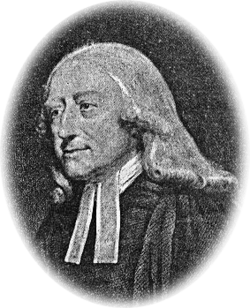This article needs attention from an expert in Christianityor religion. The specific problem is: need citations; possible help from Methodism Workgroup.(January 2019) |
| Methodist Protestant Church | |
|---|---|
| Classification | Methodism |
| Orientation | Holiness movement |
| Theology | Wesleyan |
| Associations | American Council of Christian Churches, International Council of Christian Churches |
| Founder | John Wesley |
| Origin | 1828 |
| Separated from | Methodist Episcopal Church (1828) |
| Congregations | 42 |
| Official website | themethodistprotestantchurch.org |
The Methodist Protestant Church (MPC) is a Methodist denomination of Christianity that is based in the United States. It was formed in 1828 by former members of the Methodist Episcopal Church, being Wesleyan in doctrine and worship, but adopting congregational governance.
Contents
- History
- A Methodist reform movement begins
- Establishment
- Reunification and organized dissent
- Notable people
- References
- Works cited
- General references
- External links
A majority of the Methodist Protestants merged with the Methodist Episcopal Church in 1939, and for that reason, the historic Methodist Protestant Church is regarded as one of the predecessors of the present-day United Methodist Church. [1] [ page needed ] The Mississippi MPC delegation to the 1939 Uniting Conference withdrew from the proceedings, due to worries about developing liberal elements within the UMC; most of the congregations in the Mississippi conference reorganized and continued as the Methodist Protestant Church in name, doctrine and practice. [2]
In 2024, the MPC headquarters are in Mississippi. [3]
As of 2008, the MPC consists of 42 churches in the United States, located in Alabama, Arkansas, Louisiana, Mississippi, and Oklahoma and a mission conference in the country of Belize.
